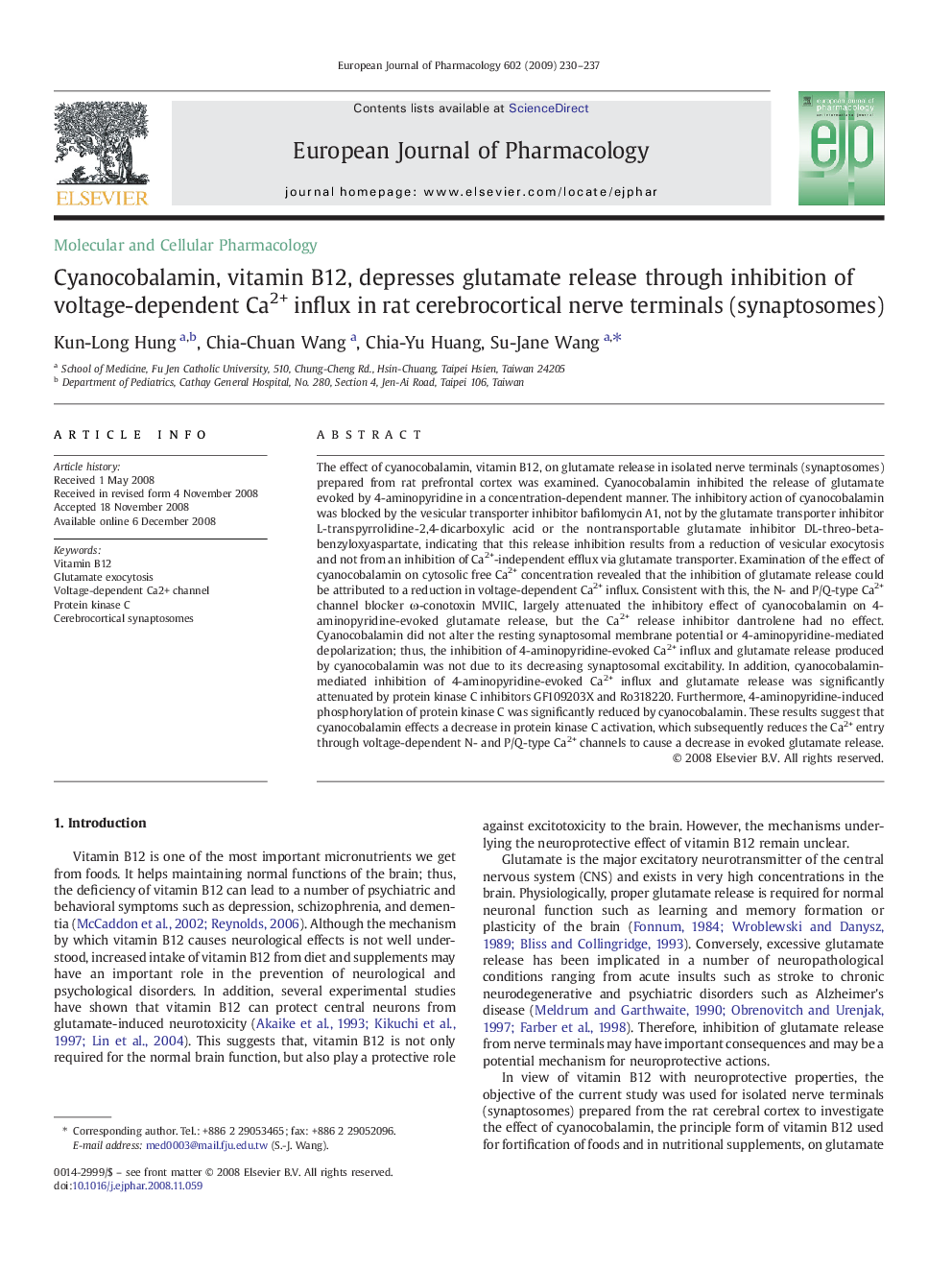| کد مقاله | کد نشریه | سال انتشار | مقاله انگلیسی | نسخه تمام متن |
|---|---|---|---|---|
| 2534503 | 1559093 | 2009 | 8 صفحه PDF | دانلود رایگان |

The effect of cyanocobalamin, vitamin B12, on glutamate release in isolated nerve terminals (synaptosomes) prepared from rat prefrontal cortex was examined. Cyanocobalamin inhibited the release of glutamate evoked by 4-aminopyridine in a concentration-dependent manner. The inhibitory action of cyanocobalamin was blocked by the vesicular transporter inhibitor bafilomycin A1, not by the glutamate transporter inhibitor L-transpyrrolidine-2,4-dicarboxylic acid or the nontransportable glutamate inhibitor DL-threo-beta-benzyloxyaspartate, indicating that this release inhibition results from a reduction of vesicular exocytosis and not from an inhibition of Ca2+-independent efflux via glutamate transporter. Examination of the effect of cyanocobalamin on cytosolic free Ca2+ concentration revealed that the inhibition of glutamate release could be attributed to a reduction in voltage-dependent Ca2+ influx. Consistent with this, the N- and P/Q-type Ca2+ channel blocker ω-conotoxin MVIIC, largely attenuated the inhibitory effect of cyanocobalamin on 4-aminopyridine-evoked glutamate release, but the Ca2+ release inhibitor dantrolene had no effect. Cyanocobalamin did not alter the resting synaptosomal membrane potential or 4-aminopyridine-mediated depolarization; thus, the inhibition of 4-aminopyridine-evoked Ca2+ influx and glutamate release produced by cyanocobalamin was not due to its decreasing synaptosomal excitability. In addition, cyanocobalamin-mediated inhibition of 4-aminopyridine-evoked Ca2+ influx and glutamate release was significantly attenuated by protein kinase C inhibitors GF109203X and Ro318220. Furthermore, 4-aminopyridine-induced phosphorylation of protein kinase C was significantly reduced by cyanocobalamin. These results suggest that cyanocobalamin effects a decrease in protein kinase C activation, which subsequently reduces the Ca2+ entry through voltage-dependent N- and P/Q-type Ca2+ channels to cause a decrease in evoked glutamate release.
Journal: European Journal of Pharmacology - Volume 602, Issues 2–3, 14 January 2009, Pages 230–237